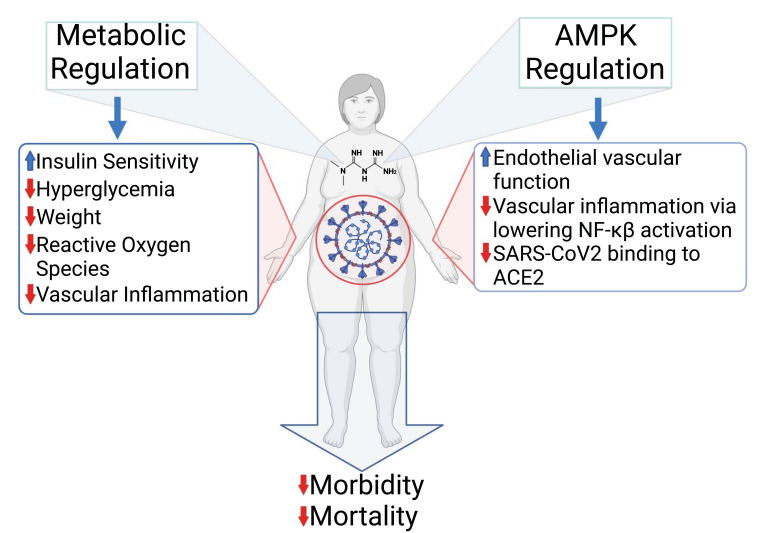Fig. (3).
The clinical data indicate that patients with diabetes and who are also obese are at higher risk of suffering serious complications and reduced survival if infected with the SARS-CoV-2 virus. Use of metformin has been shown to reduce both morbidity and mortality associated with COVID-19, although these benefits seem to be variably shared with other anti-diabetic drugs that have diverse mechanisms of action and cellular targets. As depicted under ‘Metabolic Regulation’ (left side of figure), metformin by virtue of its insulin sensitizing action and enhanced cellular uptake of glucose, reduces the impact of hyperglycaemia and resultant oxidative stress that would otherwise enhance vascular inflammation and promote endothelial dysfunction. As depicted on the right side of the figure, metformin, via the activation of AMPK, potentially may enhance eNOS activity, protect and enhance endothelial function, reduce activation of Nf-κB and lower endothelial-vascular inflammation. In addition, AMPK has been reported to phosphorylate ACE2, thereby hindering the ability of the SARS-CoV-2 virus to bind to its receptor and reduce the cellular entry of the virus and subsequent infection. Collectively, these actions of metformin reduce the impact of COVID-19 on morbidity and mortality. This figure was created with BioRender.com.

